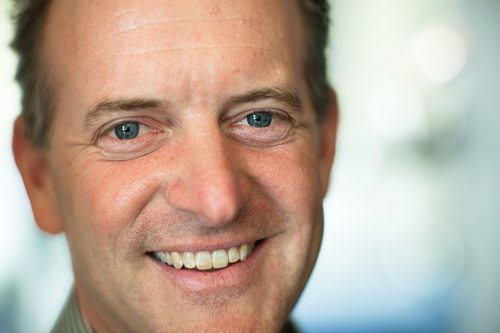True Ventures turned 10 years old this month, and it has plenty to celebrate.
The early-stage venture firm, with offices in San Francisco and Palo Alto, was the first investor in WordPress parent Automattic, a “unicorn” whose eventual public offering is widely expected. The firm also wrote the first checks to the 3D printing company Makerbot, acquired for $604 million in 2013; ad tech company Brightroll, sold to Yahoo last November for $640 million in cash; cybersecurity company Caspida, acquired for $190 million by Splunk in July; and wearable device maker Fitbit, which went public in June and is currently valued at $7.4 billion.
Given the firm’s cost basis in Fitbit alone (in the single-digit millions of dollars), and its roughly 22 percent ownership stake, we’d estimate its haul at a whopping $1.6 billion. (We should perhaps note here that in True’s history, it has closed four funds that total $866 million, or roughly half that amount.)
True’s success seems to center on its willingness to bet earlier on teams than many other Series A investors. But to better understand what else the firm seems to be getting right, we chatted earlier this week with firm cofounder Jon Callaghan. That conversation has been edited lightly for length.
TC: Happy birthday. Or anniversary? You’ve had quite a run. Fitbit alone must have a lot of investors grinding their teeth with envy.
JC: It was a monster exit. We were the first venture capital [firm to write a check, of $1.75 million] in September 2008, right after the fall of Lehman Brothers, and we were called foolish and stupid. But I like to say that when competitors say you’re crazy or stupid, you’re probably on to something.
TC: You’re known for writing checks that aren’t huge — $1 million to $3 million – early on, and getting 20 percent of a company in return. That doesn’t seem to have changed, even as most Series A investors have moved further away from very early-stage bets.
JC: Our strategy hasn’t changed. Our objective is to be there early and take very large product risks and to embrace what we call timing risk. It’s about alignment. We’ve made some exceptions, but our core business is to help entrepreneurs create products in markets that really don’t yet exist. Fitbit and Makerbot were seen as weird and wild stuff. So were drones. So is some science stuff that we’re doing right now. But these are experiments, and because we’re not sinking more than [roughly] 1 percent of [our current, $290 million] fund into each one early on, we can lose a number of times without losing a lot of dollars.
[On the other hand], by not burdening our investors with bigger checks – or locking them in with high expectations in the process — they also experience less fear and aversion to loss. And people are insanely creative when they have relatively little to lose.
TC: That must leave you plenty of money to back your winners, though our sources say you’re also separately closing on a growth fund.
JC: We can’t comment, but we have done [special purpose vehicles] over time in certain companies.
TC: As very early-stage investors, have you also taken advantage of the secondary market? You wrote Automattic its first check, for example, and it was very transparent about a $50 million secondary sale to Tiger Global in 2013.
JC: True hasn’t sold any [shares in Automattic]. We’ve been buyers.
TC: Do you have any, or many, concerns about the IPO market and the lack of tech companies seemingly able to go public?
JC: Some of the biggest companies of our time are being built, and quickly, and I think companies like Uber and Fitbit – companies operating at scale, with a global footprint and [efficient] product distribution and that are profitable will continue to have few financing challenges in either the private or public markets.
The problem is a private market problem. There are so many companies that don’t have that growth and profitability and have been burdened with enormously high valuations and burn rates, and they’re going to need durable, significant growth margins and net profits just to get out from the liquidation preferences [their later-stage investors have imposed]. Meanwhile, the world has shifted in the last month. I don’t think you can rely on another $500 million in private financing unless you have great financial performance, and most don’t. Most are losing money on every customer because their VCs have been telling them to just grow at any cost.
TC: True first invested in consumer Web companies, then SaaS companies, then infrastructure companies — then it was consumer packaged goods, robotics, wearables, and some car industry opportunities. Where are you investing right now? You mentioned science experiments.
JC: A few years ago, we started spending time in what you might call core sciences – including synthetic biology and neurosciences — thinking there was an opportunity to wade back into these markets that have been difficult to finance but that the underlying data revolution has made more capital efficient.
We haven’t announced or talked about much of it yet, but we’ve made [roughly seven related] investments so far. [Editor’s note: One startup that has announced its funding is Zymergen, which builds and test thousands of new strains of DNA at a time. It raised $44 million led by Data Collective earlier this summer, with participation from True and a handful of other firms.]
TC: That’s a lot!
JC: It’s a really interesting market. And we may be wrong about it. But we’re not hung up on being right about picking the future. We���re genuinely more interested in partnering with unbelievable entrepreneurs and seeing what we can learn.
